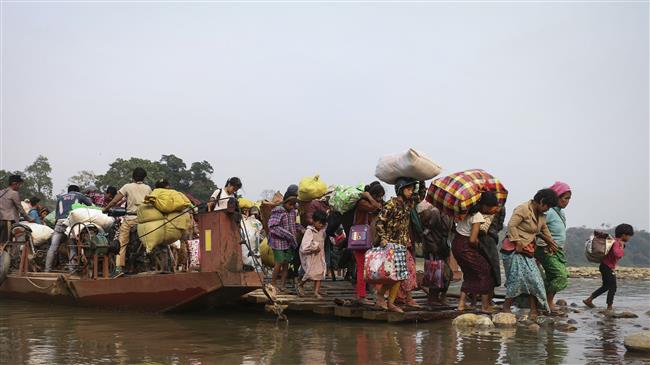
RNA - Myanmar granted specialists from the UN Refugee Agency (UNHCR) and the United Nations Development Program (UNDP) the permission to enter northern Rakhine on Friday before work began on Wednesday, World News reported.
"The team is on the ground and commenced with the first assessments today," UNHCR Spokeswoman Aoife McDonnell said Wednesday.
The UN teams are expected to visit 23 villages and three additional clusters of hamlets. This first step of the UN's "confidence-building measures" is estimated to take two weeks.
The expectation is this "very initial and small step in terms of access will be expanded rapidly to all areas covered" by the deal, McDonnell added.
The access came two months after the UN signed an agreement with Myanmar that would give its agencies access to the epicenter of the Rohingya crisis as members of the persecuted minority fear returning to their home country. The deal aimed to pave the way for voluntary repatriation of Rohingya refugees.
Myanmar launched a military offensive in August last year while the ensuing violent crackdown has forced nearly 750,000 Rohingya to flee Rakhine state for neighbouring Bangladesh.
Since August 2017, Myanmar's security forces committed nine distinct types of crimes against humanity, including murder, torture, deportation, rape, persecution, enforced disappearance and forced starvation, Amnesty's report said, as it put the responsibility on the army's top ranks.
The rights group announced that there was sufficient evidence to prompt an investigation into whether some or all military officials may have been "directly involved in planning, ordering or committing murder, rape, torture and the burning of villages".
Many Rohingya Muslim refugees express fear of returning to their homeland, where they saw their relatives murdered by soldiers and Buddhist vigilantes. Also, the UN fears the returning refugees won't be given freedom of movement if they return.
The Rohingya have lived in Myanmar for generations but are denied citizenship and are branded illegal immigrants from Bangladesh, which likewise denies them citizenship.
The UN has already described the Rohingya as the most persecuted community in the world, calling the situation in Rakhine similar to “a textbook example of ethnic cleansing".
Bangladesh and Myanmar have also agreed in November last year to begin repatriating the Rohingya but the process has stalled, as the vast majority refuse to contemplate returning until their rights, citizenship and safety are assured.
But, the International Committee of the Red Cross (ICRC) stressed that it is not yet safe for thousands of Rohingya Muslims living in overcrowded refugee camps in Bangladesh to begin returning to their homeland of Rakhine state in Myanmar.
ICRC President Peter Maurer said a lot more was needed to improve the situation he witnessed in Rakhine during an official visit recently.
"What I've seen in terms of destruction of villages, abandonment of situations, disruptions in markets, of livelihood, of communities, I don't think the present moment is an ideal condition to return," Maurer stated in Chakmakul camp for Rohingya refugees in Southeast Bangladesh.
"We need to prepare the ground for returns for those who wish to return," he added.
Aung San Suu Kyi, Myanmar's de factor leader who is also a Nobel Peace laureate, has come under intense criticism across the globe for having refused to hold the perpetrators to account.
The new UN special envoy for Myanmar, Christine Schraner Burgener, has said the Rohingya refugees “have to come back voluntarily, safe, in dignity, and in a sustainable manner”.
847/940